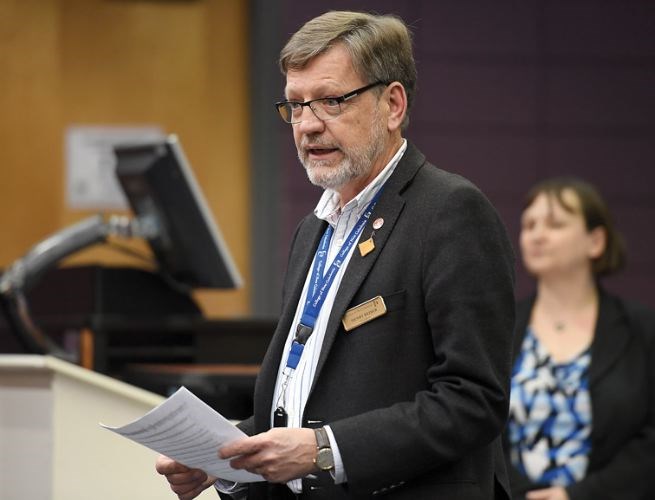The College of New Caledonia Student Union says student demand for mental health services is increasing and is urging the college to boost funding for counselling services on campus.
During an internal budget consultation yesterday, a document submitted by the student union called for a number of improvements to services on campus, including increasing course offerings and funding for mental health services.
"Across B.C., enrolments have increased since the early 2000s, yet access to student services has not kept pace," read the submission from the student union.
Harman Dandiwal, an organizer with the student union said that the union is willing to match a $20,000 increase in funding for mental health services, and other student services, from the college administration.
"For the Prince George campus, mental health has been a hot topic," Dandiwal said.
"Financial stress just adds up, stress from exams. This is usually the peak time, near Christmas, near March-April."
There is currently one counsellor working in the student wellness centre at CNC, as well as a full-time wellness coach. Both services are provided by the college.
Dana Hansen, CNC's wellness coach, said that exam periods tend to bring increased demand from students, who are often juggling a number of responsibilities. She often hears from students who are dealing with depression, anxiety and stress from many directions.
"It was pretty steady since September for me, for sure. October was mid-term time. I was definitely booked pretty solid," Hansen said.
"A lot of students are either working, or they're working and they have a family as well. It can be tough to juggle everything."
Friday was the last day of exams for CNC's 2017 semester.
Henry Reiser, president of CNC, said the college has plans to improve mental health services.
"It's stabilizing the number of counsellors that we have and looking at different methods to deliver the kinds of mental health supports that they need," Reiser said.
Reiser said the subject of mental health has received increasing interest from the provincial government. He has been told the Ministry of Advanced Education, Skills & Training has plans to fund a 24/7 phone line focused on providing mental health assistance for students.
The issue of mental health services also came up during a recent meeting between post-secondary presidents and Melanie Mark, B.C.'s Minister for Advanced Education, Skills & Training.
"We brought to the attention of the minister last Friday the lack of services available in the community. The government recognizes that this is a challenge, and they will be looking at mechanisms to address that," Reiser said.
Both Dandiwal and Hansen also said stigma often prevents international students at CNC from accessing mental health services. In many other countries, speaking to a mental health professional is often viewed as a sign of weakness. But Dandiwal also said the CNC's international education office has been very successful in organizing a high number of cultural events. This has helped reduce social isolation amongst international students studying in a second language, Dandiwal explained, but these supports are not always there for domestic students.
"They did a fabulous job, but we want something similar to be done for domestic students because they're being left out," Dandiwal said.
Nine hundred international students currently attend CNC. Their numbers represent 17 per cent of the total student population.



